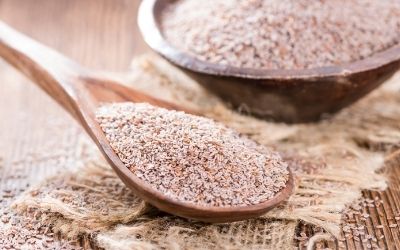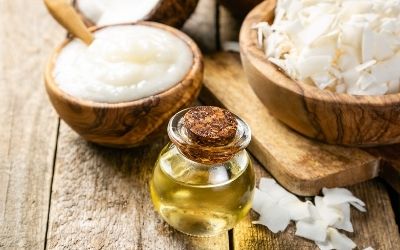Our nutritionist weighs in on Whey! All about whey protein.
- By Patrick McCarthy (MSc)
- 6 Mar 2021


One of the first questions I am always asked when sitting down with a client is "Should I start taking whey protein?". It quickly becomes apparent that there are several misunderstandings around this supplement. For example, many believe it to be a synthetic, or artificial, supplement that doesn't come from food.
Allow me to clear this right up for you guys! Whey protein is sourced directly from the top layer fluid that accumulates during cheese production from cow’s milk. It is completely natural and is taken through a few simple production steps to reach the finished product. Whey makes up 20% of the protein in milk, while another type, casein, makes up the remaining 80%.
In the following article, I will answer some of the most commonly-asked questions surrounding whey protein.

Why is whey so popular?
Hopefully, by now, you have come to the understanding that not all protein is created equal. Just because a nutrition label has "7g of protein per serving" doesn't necessarily mean that the protein is of a high-quality.
What determines the quality of protein?
Great question! Protein quality is dependent on both the amino acid profile as well as the digestibility. There are 20 different amino acids that naturally occur in our food, and nine of them are known as essential. This means we cannot form them in the body. So, protein sources with higher levels of these essential amino acids, are known to be higher on the quality scale.
Digestibility is based on the accompanying nutrients in a food that might limit the amount of protein that is absorbed. For example, if a food is higher in fibre, only 70-80% of the protein may be absorbed.
Whey protein is one of the highest-ranking protein sources, when graded using these two scores. It has an optimal amino acid profile for boosting muscle protein synthesis, the building of muscle tissue and is highly digestible.

What is the difference between whey and casein?
Whey protein is very easily digested because it is is easily soluble in water. This means it can be dissolved quite easily in a solution and passes quite efficiently through our intestinal wall into the bloodstream.
Casein on the other hand, is less soluble and takes a lot longer to break down to amino acids for absorption once in the digestive tract. This is why it is known as a slow-release protein source and can be a good option before bed for those trying to increase muscle mass and recovery.
However, because of the slow-release nature of the protein source, casein is not as beneficial for stimulating protein synthesis. This is because all of the protein will not reach the muscle at the same time and so the threshold for protein synthesis may not be passed.
What is the difference between whey and whey isolate?
The most popular version of whey, which you are probably familiar with is known as concentrate. This consists of between 70-80% protein, along with other nutrients including fat and carbohydrates (in the form of lactose).
Whey isolate is a more expensive version which contains a slightly higher proportion of protein (90%). It is usually lower in Calories as it has less accompanying fat and carbohydrates.

Who is whey useful for?
Whey protein is a great option for a variety of groups. My common recommendation is to those individuals and athletes that find it difficult to reach their daily protein needs consistently. A typical protein shake will contain 20-30g of high quality protein which is the equivalent of most meals.
Many athletes regularly use whey protein concentrate, isolate or hydrolysate for a variety of reasons. These individuals typically have higher protein needs, which they may find difficult to reach through food alone. They also may want to maximise the adaptations they gain from their trainings, so a protein shake can be consumed within minutes of a resistance/endurance training session. This has been shown to provide some beneficial impacts in athletes.
Interestingly, a growing area of research is surrounding the use of protein supplements for the elderly. These individuals experience accelerated rates of muscle loss than younger adults. It is well-known that we begin to naturally lose muscle mass at around 35 - 40 years of age and the rate of these losses increases with each year of age.
Because of these losses, it becomes more difficult to move freely. This results in greater levels of inactivity and a lower appetite. Lower appetite means reduced food (and protein intake) and further muscle loss).
It is a vicious circle known as 'Anorexia of Ageing'.
How can we offset this? What about a chocaletey drink that tastes great, doesn't feel like you are eating a whole meal and can provide a high quality source of protein?
What do you say to some whey?
Whey protein shakes have been consumed in studies with elderly individuals and shown to have great benefits for muscle retention, reducing fall frequency and more.

Should I buy organic whey?
I would say yes. Normally, I am of the opinion that organic is not always the be all, end all. But it may be important when it comes to certain foods and products, such as milk-derived whey.
Why is organic whey better?
Well, as you know, in some countries, growth hormones and steroids are still used to increase milk production in cows. For example, a bovine growth hormone known as somatotropin is currently approved by the Food & Drug Administration (FDA) and is administered to cows for increasing milk production. This and others will only be approved if there is evidence that they are completely safe (Source: FDA.gov).
However, when it comes to the livestock industry, I rather support organic practices and all-natural approaches. That is why I prefer to go with organic whey protein, although it can be difficult to find sometimes.
When is the best time to have whey?
When you hear the term “Protein shake” you will often find yourself imagining the gym or working out. Since its introduction as a supplement, protein has been used as a post-training drink to provide rapid delivery or amino acids to the muscle.
But, why not wake up and have a protein shake? Why not mix it with milk and pour it over your favourite cereal for a late night snack? Why not have cookies and protein milk?
You shouldn’t need to consume more than 1-2 scoops of whey, but you don’t need to train to have a shake! Protein is a highly beneficial nutrient, and by adding a shake to some of your meals, you’ll hit your targets consistently.

Wrap up whey protein
Hopefully you learned some valuable insights from this article. Of course, if you have any questions at all, feel free to leave them in the comments sections below!
Here are some juicy takeaways about whey protein
- Protein is not all created equal and all sources lie on a spectrum.
- Whey protein ranks very highly on this ranking, near the very top in fact
- Protein can help increase muscle, recovery and overall health when added to a balanced diet
- Protein may help to offset muscle losses and reduce frequency of falls in the elderly
- Protein isolate is a more purified and protein-rich alternative to whey, but usually comes with a price!






